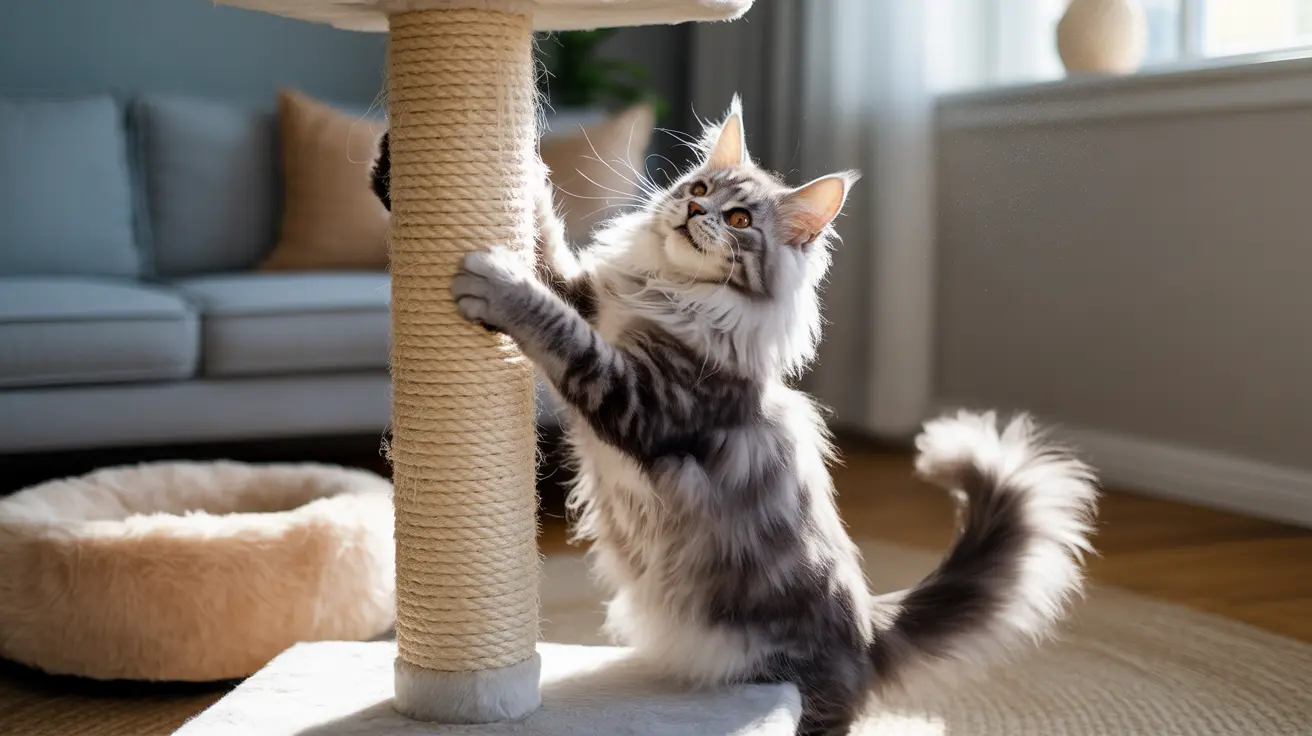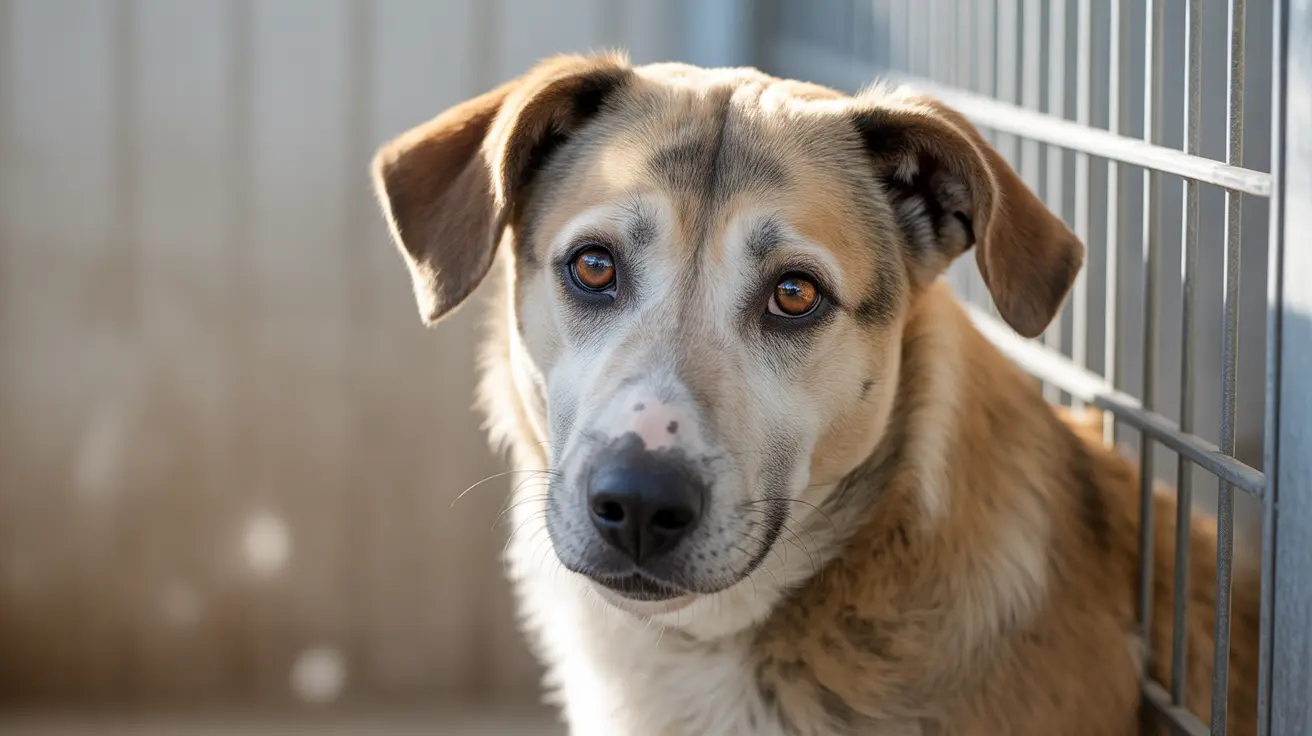Maine Coon cats are beloved for their gentle giant personalities and intelligence, but like all cats, they can develop behavioral issues that need addressing. Understanding these Maine Coon behavior problems and knowing how to handle them effectively is crucial for maintaining a harmonious household with your feline friend.
In this comprehensive guide, we'll explore common behavioral challenges Maine Coon owners face and provide expert-backed solutions to help you raise a well-adjusted, happy cat.
Common Behavioral Challenges in Maine Coons
Excessive Vocalization
Maine Coons are naturally talkative cats, but excessive meowing often indicates underlying issues. This behavior typically stems from:
- Boredom or lack of stimulation
- Hunger or thirst
- Need for attention
- Medical concerns
To address excessive vocalization, establish regular feeding schedules and increase interactive play sessions. Importantly, avoid responding to demanding meows, as this reinforces the behavior.
Destructive Scratching
Maine Coons have powerful claws and a strong scratching instinct. Without proper outlets, they may damage furniture and carpeting. Provide multiple scratching posts of varying textures and heights, strategically placed near favorite scratching spots. Reward your cat for using appropriate scratching surfaces.
Environmental Enrichment Solutions
Creating an Engaging Space
Maine Coons thrive in enriched environments that cater to their natural instincts. Essential elements include:
- Tall cat trees for climbing
- Window perches for observation
- Interactive toys and puzzle feeders
- Multiple scratching posts
- Quiet retreats for alone time
Exercise and Play Requirements
Regular exercise is crucial for preventing behavior problems. Schedule at least two 15-minute play sessions daily, using:
- Wand toys
- Laser pointers (with a physical reward)
- Fetch toys
- Climbing challenges
Positive Training Techniques
Establishing Boundaries
Maine Coons respond well to positive reinforcement training. Never use physical punishment or harsh scolding, as these methods can damage your relationship and worsen behavioral issues. Instead:
- Reward desired behaviors immediately
- Use high-value treats for training
- Maintain consistent rules
- Redirect unwanted behaviors to appropriate activities
Building Trust and Routine
Create a structured daily routine that includes:
- Regular feeding times
- Scheduled play sessions
- Grooming periods
- Quiet time for bonding
Addressing Health-Related Behaviors
Sometimes, behavior changes signal health issues. Watch for:
- Sudden aggression
- Changes in litter box habits
- Excessive grooming
- Lethargy or decreased activity
Always consult a veterinarian if you notice sudden behavioral changes, as they may indicate underlying medical conditions requiring attention.
Frequently Asked Questions
Why do Maine Coon cats exhibit excessive meowing, and how can I address this behavior?
Maine Coons meow excessively due to boredom, hunger, or attention-seeking behavior. Address this by establishing regular feeding schedules, increasing playtime, and avoiding reinforcement of demanding vocalizations. Only respond to quiet, calm behavior.
How can I prevent destructive scratching in Maine Coons, and what are some effective deterrents?
Prevent destructive scratching by providing multiple appropriate scratching surfaces, using attractant sprays on designated posts, and deterrent sprays on furniture. Regularly trim your cat's claws and reward proper scratching behavior.
What are common causes of aggression in Maine Coon cats, and how can I manage it?
Aggression often stems from fear, territorial disputes, or medical issues. Manage it by identifying triggers, providing safe spaces, and using positive reinforcement for calm behavior. Consult a veterinarian to rule out medical causes.
How can I stop my Maine Coon from soiling the house, and what are the potential underlying issues?
House soiling may indicate medical problems, stress, or litter box issues. Ensure boxes are clean and accessible, rule out health concerns with a vet check, and address any environmental stressors causing anxiety.
What are some effective ways to combat boredom and attention-seeking behaviors in Maine Coon cats?
Combat boredom through environmental enrichment, regular play sessions, puzzle feeders, and rotating toys. Provide climbing opportunities and window views, and establish regular interaction times throughout the day.
Conclusion
Successfully managing Maine Coon behavior problems requires patience, consistency, and understanding. By implementing positive reinforcement techniques, providing appropriate environmental enrichment, and maintaining regular veterinary care, you can help your Maine Coon become a well-behaved and happy family member.






